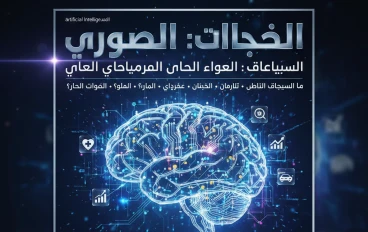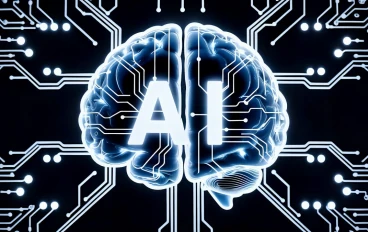
Artificial Intelligence: Transforming the Future of Humanity
Introduction
In the 21st century few technological advancements have generated as much interest debate, and impact as Artificial Intelligence (AI). Once a concept confined to science fiction AI is now a cornerstone of digital transformation. From virtual assistants and recommendation systems to robotics and medical diagnostics AI is shaping nearly every industry But beyond the headlines and innovations lies a deeper narrative: one that challenges us to rethink what it means to be human in an age of intelligent machines.
Understanding AI: More Than Just Algorithms
At its core, Artificial Intelligence refers to machines or software systems that can perform tasks that typically require human intelligence This includes learning (machine learning), reasoning, problem-solving, understanding language (natural language processing), and even perception.
AI can be classified into three types:
Narrow AI (Weak AI): Designed to perform a specific task (e g., voice recognition).
General AI (Strong AI): Hypothetical systems that can perform any intellectual task a human can do.
Superintelligent AI: A theoretical future AI that surpasses human intelligence in all domains.
The Drivers Behind the AI Revolution
Several key factors are fueling the global AI revolution:
1. Data Explosion (Big Data):
The internet, social media, and IoT devices have produced massive amounts of data AI systems feed on data to learn and improve over time.
2. Computational Power:
Advancements in GPUs, cloud computing, and neural network architectures have enabled faster and more efficient AI training and deployment.
3. Open Source and Collaboration:
AI research is increasingly open and collaborative, with frameworks like TensorFlow, PyTorch, and datasets like ImageNet accelerating innovation.
4. Economic Incentives:
Corporations and governments are heavily investing in AI to boost productivity, automate labor, and gain competitive advantages.
Applications Across Industries
AI’s impact is widespread:
Healthcare: AI systems assist in early diagnosis of cancer, predict patient outcomes, and help develop new drugs.
Education: Intelligent tutoring systems adapt lessons to students’ individual needs.
Finance: AI predicts market trends, detects fraud, and powers robo-advisors.
Transportation: Self-driving vehicles, traffic management systems, and logistics automation.
Creative Arts: AI composes music, generates visual art, and even writes news articles.
Ethical and Social Implications
Despite its potential, AI raises numerous ethical and societal concerns:
Job Displacement: Automation threatens traditional employment in sectors like manufacturing, customer service, and transportation.
Bias and Discrimination: AI systems can inherit and amplify biases present in training data, leading to unfair outcomes.
Privacy Violations: AI-enabled surveillance and data collection pose serious privacy threats.
Autonomy and Responsibility: Who is accountable when an autonomous system causes harm?
AI and the Future of Humanity
As we move forward, key philosophical and regulatory questions emerge:
Should there be limits to AI development?
How can we ensure AI serves all of humanity, not just a privileged few?
What does consciousness and morality mean in the presence of machines that "learn"?
Leading thinkers like Elon Musk and Yuval Noah Harari have warned of unchecked AI development. Meanwhile, organizations such as OpenAI advocate for responsible, transparent AI aligned with human values.
Conclusion: Balancing Innovation and Responsibility
Artificial Intelligence holds extraordinary promise but also demands caution Its evolution is not merely technological but social, economic, and ethical If governed wisely, AI could help us solve complex global problems — from disease to climate change. But if left unchecked, it could exacerbate inequality, erode privacy, and even challenge our autonomy
The question is no longer whether AI will change the world, but how—and on whose terms.





































